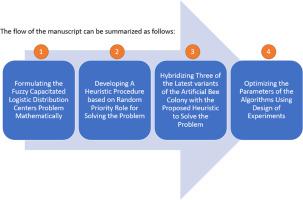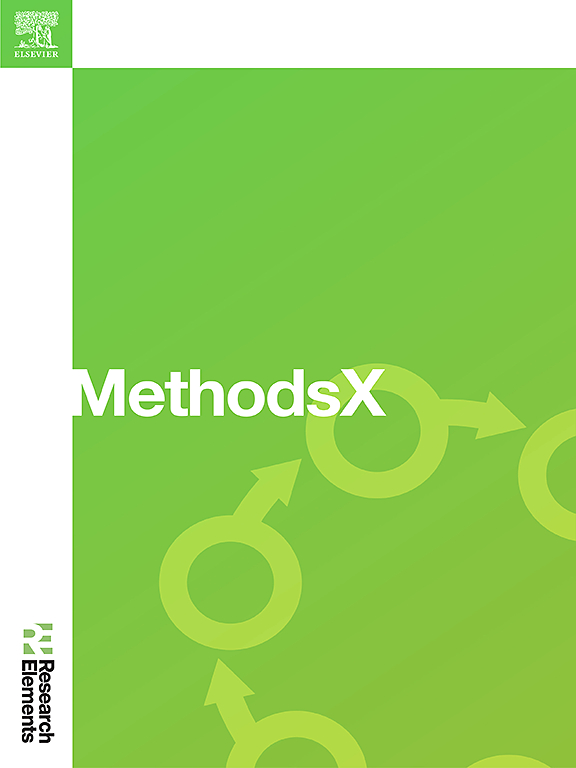An artificial bee colony optimization algorithms for solving fuzzy capacitated logistic distribution center problem
IF 1.6
Q2 MULTIDISCIPLINARY SCIENCES
引用次数: 0
Abstract
This paper presents a methodological approach to solving the fuzzy capacitated logistic distribution center problem, with a focus on the optimal selection of distribution centers to meet the demands of multiple plants. The distribution centers are characterized by fixed costs and capacities, while plant demands are modeled using fuzzy triangular membership functions. The problem is mathematically formulated by converting fuzzy demands into crisp values, providing a structured framework for addressing uncertainty in logistic planning. To support future research and facilitate comparative analysis, 20 benchmark problems were generated, filling a gap in the existing literature. Three distinct artificial bee colony algorithm variants were hybridized with a heuristic: one using the best solution per iteration, another incorporating chaotic mapping and adaptive procedures, and the third employing convergence and diversity archives. An experimental design based on Taguchi's orthogonal arrays was employed for optimizing the algorithm parameters, ensuring systematic exploration of the solution space. The developed methods offer a comprehensive toolkit for addressing complex, uncertain demands in logistic distribution, with code provided for reproducibility.
Key contributions include:
- •Development of a fuzzy model for the selection of distribution centers with fixed costs and capacities under uncertain plant demands.
- •Generation of 20 benchmark problems to advance research in the fuzzy capacitated logistic distribution center problem domain.
- •Integration of a heuristic approach with three distinct ABC algorithm variants, each contributing unique methodological insights.

解决模糊容纳物流配送中心问题的人工蜂群优化算法
本文提出了一种解决模糊容量物流配送中心问题的方法论,重点是优化配送中心的选择,以满足多个工厂的需求。配送中心以固定成本和容量为特征,而工厂需求则使用模糊三角阶乘函数建模。通过将模糊需求转换为清晰值,对问题进行了数学表述,为解决物流规划中的不确定性问题提供了一个结构化框架。为了支持未来的研究并促进比较分析,我们生成了 20 个基准问题,填补了现有文献的空白。三种不同的人工蜂群算法变体与启发式算法进行了混合:一种使用每次迭代的最佳解决方案,另一种结合了混沌映射和自适应程序,第三种使用收敛和多样性档案。在优化算法参数时,采用了基于田口正交阵列的实验设计,确保系统地探索解决方案空间。所开发的方法为解决物流配送中复杂、不确定的需求问题提供了一个全面的工具包,并提供了代码以实现可重复性。主要贡献包括:-开发了一个模糊模型,用于在不确定的工厂需求下选择具有固定成本和能力的配送中心;-生成了 20 个基准问题,以推进模糊能力物流配送中心问题领域的研究;-将启发式方法与三种不同的 ABC 算法变体相结合,每种变体都具有独特的方法论见解。
本文章由计算机程序翻译,如有差异,请以英文原文为准。
求助全文
约1分钟内获得全文
求助全文
来源期刊

MethodsX
Health Professions-Medical Laboratory Technology
CiteScore
3.60
自引率
5.30%
发文量
314
审稿时长
7 weeks
期刊介绍:
 求助内容:
求助内容: 应助结果提醒方式:
应助结果提醒方式:


